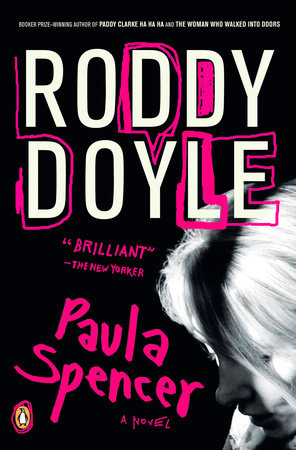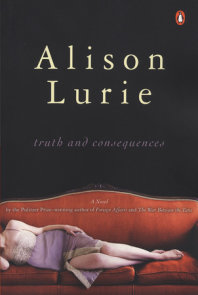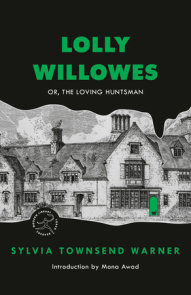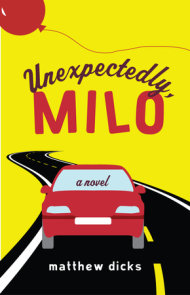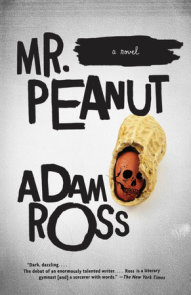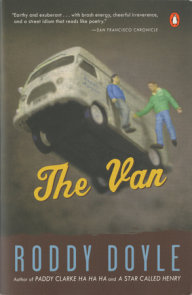READERS GUIDE
Questions and Topics for Discussion
INTRODUCTION
Looking for Paula
The first time Paula Spencer’s teenage son, Jack, shows her what an Internet search engine does, she impulsively suggests he type in her name. The search turns up a parenting expert, and the irony is not lost on Paula, who has given up drinking but is haunted by the knowledge of her own troubled history as a parent.
Paula Spencer is the protagonist of an earlier novel by Roddy Doyle, The Woman Who Walked into Doors. But much has happened since then, and in Doyle’s new novel, he returns to her life and answers the question: Who is Paula Spencer now? In her newly sober state, she struggles through every day. She is a mother and a sister, and knows she hasn’t been very good at either. She works as a cleaning woman for Dublin households and offices, as she has for years, but these days she might be the only white woman on a cleaning crew of “foreigners.” She is a widow who has not been with a man in more than a decade. And despite her newfound sobriety, those closest to her cannot help but remind her that she is an “alco,” someone to be watched with suspicion.
Her family also seems to know much more about the world than she does. Paula comes to realize that Ireland looks different to her now. It is not entirely unfamiliar, but the economic boom and immigration mean the landscape and people are changing, as are the lives of many of her fellow Irish men and women. In this world that she views by turns with skepticism and wonder, where does she fit? Has the world passed her by without her noticing? Has she herself changed? In the course of the novel she ponders all this, and she also thinks back on her own, smaller world of fear and abuse at the hands of her husband. Wondering who she has become, Paula constantly catches herself, revises her thoughts, undercuts her softer feelings. Expressing affection for and annoyance with someone—or herself—in almost the same breath, she might come off as mercurial, but in truth she is as complicated as any of us, and as real, which is what makes her such an affecting character. Doyle doesn’t pin her down, he doesn’t define her once and for all, and he doesn’t allow us to do so either.
When Paula tells Joe, a man she has met at the bottle return with whom she begins to strike up a friendship, that she is an alcoholic, she does so almost naturally, in the course of a conversation in a public place. By this time she knows that being an alcoholic is an important fact about her, but it is not everything. John Paul, the son who has long seemed a stranger to her, is finally able to talk to her in a way that lets her know he sees her clearly, sees what she has to do every day to keep going. Joe, who is new in her life, has already seen much more in her, has seen her as a woman he wants to know, and perhaps, as she opens herself up to him, she begins to see it too.
The Evolution of Paula Spencer
Irish audiences first encountered Paula Spencer in the four-part television drama Family, scripted by Roddy Doyle for the BBC. This unflinching depiction of how abuse and alcoholism affect one particular Irish working-class family was acclaimed as compelling and truthful, but many viewers were uncomfortable and even angry with its subject matter. Doyle, undaunted, went on to write his 1996 novel, The Woman Who Walked into Doors, in Paula’s voice. The novel has since been turned into an opera and a stage play (the latter by Doyle), and it speaks to the strength and depth of Doyle’s creation that Paula has had so many incarnations, especially dramatic ones. She has grown beyond the page because she lives so fully on it. Francine Prose, in reviewing The Woman Who Walked into Doors for the Los Angeles Times, compared Paula to another great Irish woman of literature, Joyce’s Molly Bloom, noting that Paula is “at once ordinary and mythical, lyrical and gritty, down to earth and so much larger than life that her personality keeps spilling over the boundary between the spiritual and the carnal.”
The previous novel was narrated by Paula herself, who looks back over the years of her life with her husband, Charlo. By contrast, in Paula Spencer, Doyle employs a third-person present-tense narration, allowing something of a documentary-style effect, cutting from scene to scene, though always rich with detail and with Paula’s own pointed observations. The sentences are often brief, often fragmented, so while we are ostensibly outside of Paula, we are nonetheless immersed in the world as she experiences it. Perhaps this is what makes her seem more human, though no less vibrant or extraordinary. She clings to routine, keeps herself going: working, coming home, making her lists, facing what must be faced, finding small flashes of joy. By the end of the novel, which covers a little more than a year, some things have changed for Paula and some things have not. It is almost as though we were revisiting her at a random section of her life, but this is only because, as we all do, Paula lives the everyday moments that make up life. In those moments she is also filled with feeling—the ache to be a good mother, the craving for the touch of a man, the elation of hearing new music. And by the end it’s clear that Paula has found something in the world and in herself that she hasn’t felt in a long time: the thrill of possibility.
ABOUT RODDY DOYLE
Roddy Doyle is an internationally bestselling writer. His first three novels—The Commitments, The Snapper, and the 1991 Booker Prize finalist The Van—are known as The Barrytown Trilogy. He is also the author of the novels Paddy Clarke Ha Ha Ha (1993 Booker Prize winner), The Woman Who Walked into Doors, and A Star Called Henry, and a non-fiction book about his parents, Rory & Ita. Doyle has also written for the stage and the screen: the plays Brownbread, War, Guess Who’s Coming for the Dinner, and The Woman Who Walked Into Doors; the film adaptations of The Commitments )as co-writer), The Snapper, and The Van; When Brendan Met Trudy (an original screenplay); the four-part television series Family for the BBC; and the television play Hell for Leather. Roddy Doyle has also written the children’s books The Giggler Treatment,Rover Saves Christmas, and The Meanwhile Adventures and contributed to a variety of publications including The New Yorker magazine and several anthologies. He lives in Dublin.
DISCUSSION QUESTIONS






